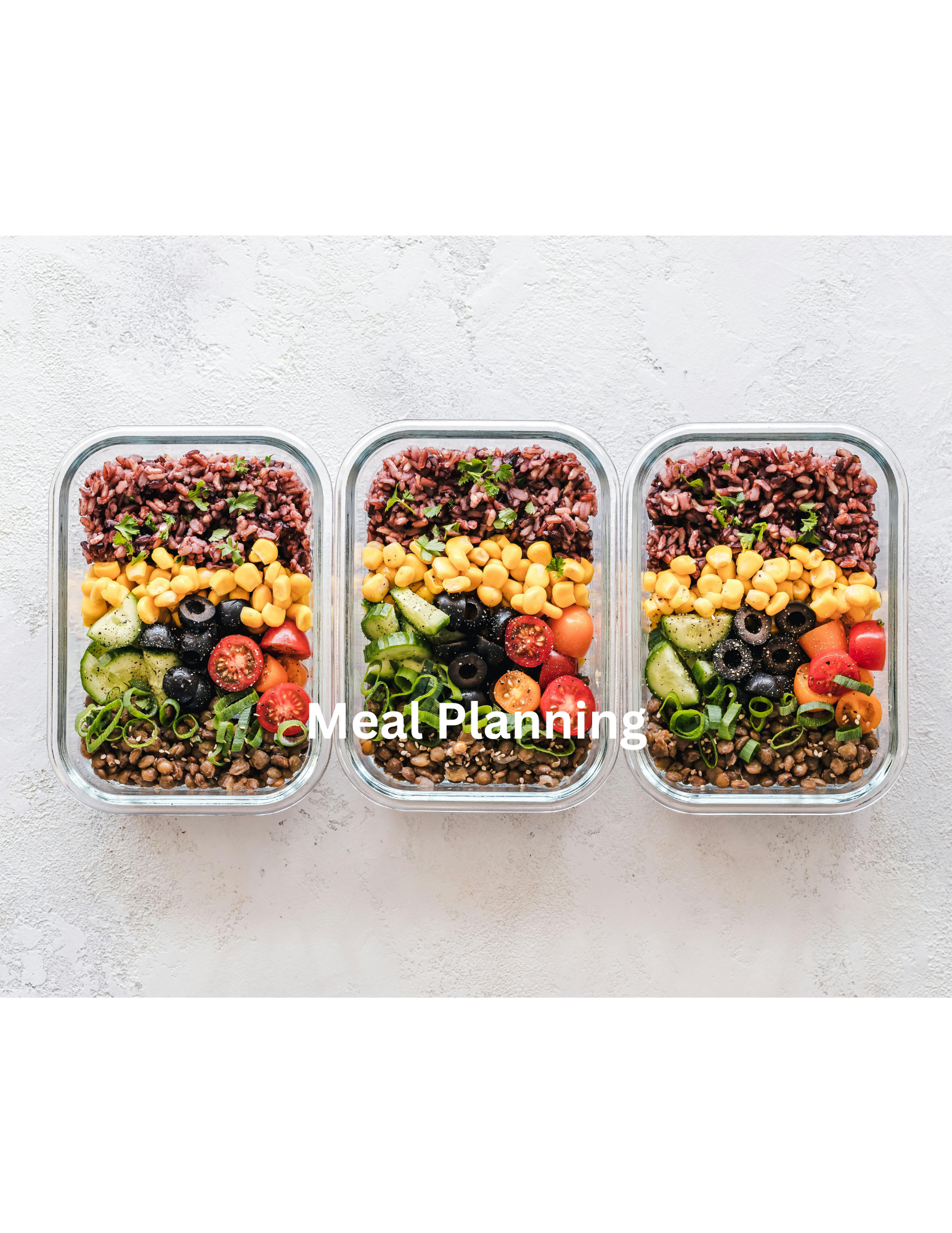
If you’re tired of stressing over what to cook every day and want to save some serious cash, meal planning is the way to go. Not only does it help you stay organized, but it also cuts down on food waste and ensures you always have a delicious meal ready. Here’s a comprehensive guide to help you get started with meal planning so you can save money and time with organized weekly menus.
Read also: How to Save Money on Fitness
1. The Benefits of Meal Planning
Save Money
One of the biggest perks of meal planning is the financial savings. By planning your meals in advance, you can create a shopping list based on what you actually need, reducing impulse buys and unnecessary spending. Plus, buying ingredients in bulk or on sale can help you save even more.
Reduce Food Waste
Meal planning helps you use up what you already have in your pantry, fridge, and freezer. By planning meals around these ingredients, you can minimize food waste and make the most of what you’ve already bought.
Save Time
Having a meal plan means you spend less time deciding what to cook each day. It also streamlines your grocery shopping because you’ll know exactly what you need. This efficiency can free up time for other activities you enjoy.
Eat Healthier
When you plan your meals, you can make healthier choices by including a variety of fruits, vegetables, lean proteins, and whole grains. You can also avoid the temptation of fast food and takeout, which are often less healthy and more expensive.
2. Getting Started with Meal Planning
Assess Your Schedule
Start by looking at your weekly schedule. Identify busy days when you might need quick and easy meals, and other days when you have more time to cook. This will help you decide which meals to plan for and how much prep time you’ll need.
Create a Master List of Meals
Make a list of your favorite meals and recipes that you and your family enjoy. Include a mix of breakfast, lunch, dinner, and snack options. This list will serve as your go-to resource when creating your weekly meal plans.
Check Your Inventory
Before planning your meals, check what you already have on hand. Take note of ingredients that need to be used up soon and plan meals around them. This helps reduce food waste and saves money by using what you already have.
Plan Your Meals
Using your master list of meals and your inventory check, plan your meals for the week. Aim for a balanced mix of proteins, vegetables, and grains. Consider planning theme nights, like Meatless Mondays or Taco Tuesdays, to make meal planning more fun and varied.

3. Creating an Organized Shopping List
Categorize Your List
Organize your shopping list by categories, such as produce, dairy, meat, pantry items, and frozen foods. This makes your grocery shopping more efficient since you can quickly find what you need in each section of the store.
Stick to Your List
Once you’ve created your shopping list, stick to it. Avoid impulse buys and only purchase what you need for your planned meals. This discipline helps you stay within your budget and reduces food waste.
Use Coupons and Sales
Take advantage of coupons, sales, and discounts when shopping. Check store flyers and apps for deals on items you need. Combining coupons with sales can lead to significant savings.
Buy in Bulk
For staple items that you use frequently, consider buying in bulk. This can save money in the long run and ensure you always have essential ingredients on hand. Just make sure you have enough storage space and that the items won’t expire before you use them.
4. Prepping and Storing Your Meals
Prep Ingredients in Advance
Spend some time prepping ingredients in advance to make cooking during the week faster and easier. Chop vegetables, marinate meats, and portion out snacks. Having these tasks done ahead of time can save you valuable minutes on busy days.
Batch Cooking
Batch cooking is a great way to save time and ensure you always have a meal ready. Cook large batches of soups, stews, casseroles, and grains, and portion them out for the week. Freeze any extras for future use.
Use Proper Storage
Invest in quality storage containers to keep your prepped ingredients and cooked meals fresh. Glass containers, mason jars, and reusable silicone bags are great options. Label each container with the contents and date to keep track of what needs to be used first.
Make Use of Your Freezer
Your freezer is your best friend when it comes to meal planning. Freeze leftovers, prepped ingredients, and even entire meals to extend their shelf life. Having a stash of freezer meals can be a lifesaver on busy nights when you don’t have time to cook.
5. Staying Flexible
Plan for Leftovers
Incorporate leftover nights into your meal plan to use up any extra food. This reduces waste and saves you from cooking an additional meal. You can also get creative and repurpose leftovers into new dishes, like turning roast chicken into a chicken salad or soup.
Be Open to Adjustments
Life happens, and sometimes you might need to adjust your meal plan. Maybe you have unexpected plans or crave something different. That’s okay! Being flexible with your meal plan ensures you stay on track without feeling restricted.
Keep It Simple
You don’t need to cook elaborate meals every night. Simple dishes can be just as delicious and satisfying. Focus on easy, healthy recipes that you can whip up quickly, especially on busy days.

6. Tips for Staying Motivated
Involve the Family
Get the whole family involved in meal planning. Ask for input on favorite meals and have kids help with prep tasks. When everyone is involved, it makes the process more enjoyable and encourages everyone to stick to the plan.
Try New Recipes
Keep things interesting by trying new recipes regularly. This prevents meal planning from becoming monotonous and helps you discover new favorite dishes. Browse cookbooks, food blogs, and social media for inspiration.
Track Your Savings
Keep track of how much money you’re saving by meal planning. Seeing the savings can be motivating and reinforce the benefits of staying organized. Use a spreadsheet or budgeting app to monitor your grocery expenses and compare them to previous months.
Reward Yourself
Treat yourself for sticking to your meal plan and saving money. Whether it’s a special treat, a fun activity, or a small splurge, rewarding yourself helps maintain motivation and makes the process more enjoyable.
Conclusion
Meal planning is a game-changer for saving money and time while ensuring you eat delicious, healthy meals. By planning ahead, creating organized shopping lists, prepping in advance, and staying flexible, you can take control of your kitchen and make mealtime a breeze. Remember, the key to successful meal planning is consistency and finding a routine that works for you. Happy planning and bon appétit!






